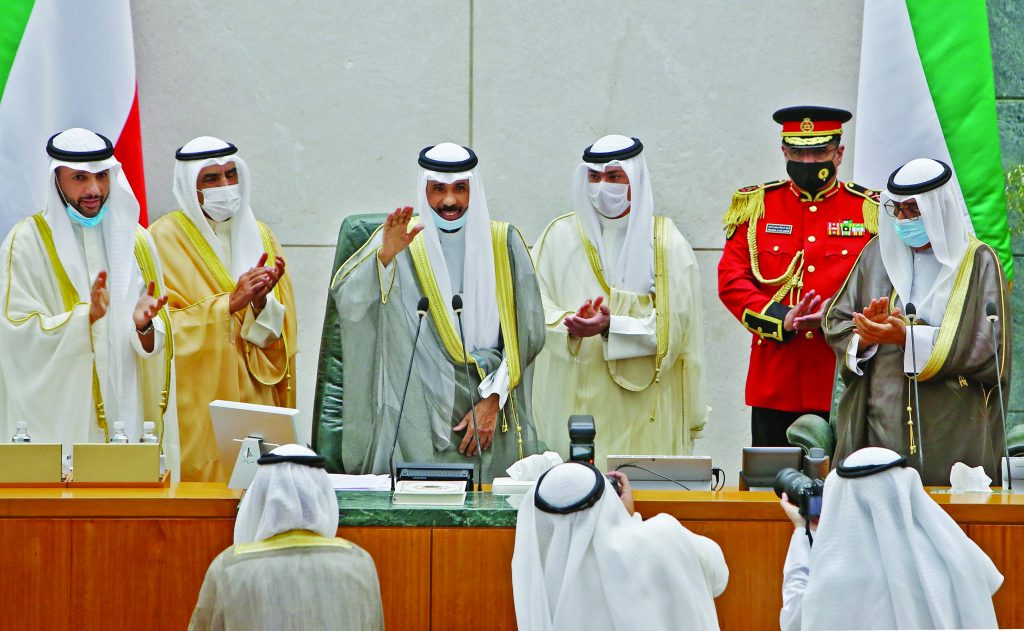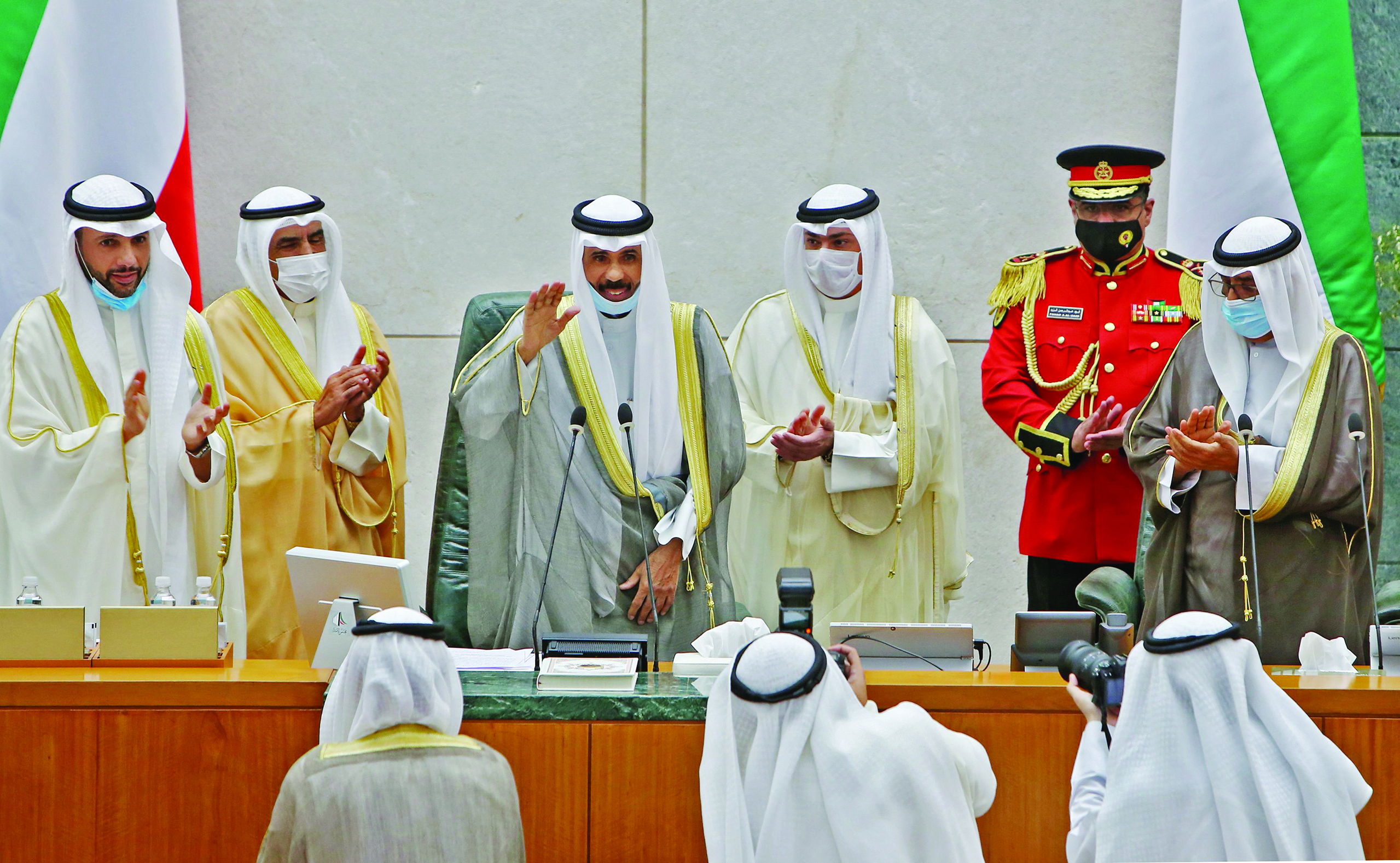

By B Izzak
KUWAIT: The National Assembly yesterday unanimously approved a law that requires the government to take measures to reduce the number of expats not needed in the country, in a bid to rebalance the demographic structure where expats form an overwhelming 70 percent of the population. The law was passed in the second and final reading after introducing a number of key amendments, mainly abolishing the quota system for expat nationalities living in the country after the government objected to the system.
Moreover, the law gives more powers to the government to tackle the severe imbalance in the demographic structure after MPs attempted to issue a strong law mandating the government to take harsher measures. The law was passed in a special supplementary term which lasted for just a day. During the session, a number of laws and issues were discussed, but MPs blocked the discussion of a bill seeking to reform the election law.
HH the Amir Sheikh Nawaf Al-Ahmad Al-Jaber Al-Sabah opened the shortened term by calling for national unity, which he said has proven to be the most powerful weapon to confront challenges facing the nation. The Amir also reaffirmed faith in Kuwait's democratic system and urged voters to elect the best candidates ahead of parliamentary elections set for Dec 5. Addressing the session, Speaker Marzouq Al-Ghanem called for the need to resolve pressing issues like the budget deficit and the decades-old problem of stateless people or bedoons.
HH the Prime Minister Sheikh Sabah Al-Khaled Al-Sabah, also addressing the supplementary legislative session, called for greater efforts to "diversify revenue sources and rationalize spending and consumption … without detriment to citizens". He said the government was seeking more sustainable tools to finance the budget. The premier said Kuwait will continue mediation efforts to end a Gulf dispute that has seen Saudi Arabia and its allies boycott Qatar since mid-2017. He reiterated Kuwait's support for Palestinians' rights.
The population law stipulates that the government will issue "mechanisms" to deal with the imbalance in the population structure within one year of issuing the law. These mechanisms will put a ceiling on expatriate workers in the country. The Cabinet will issue executive decisions every year if necessary to implement the mechanisms and will provide the Assembly with annual reports on progress made.
MPs had sought to force the government to gradually cut the numbers of expats over the next five years in a bid to achieve some balance between Kuwaitis and non-Kuwaitis. The mechanisms will take into account the number of expats at the time of issuing the decisions and the national development plan and its requirement of expat workers, the law states. The plan will also issue guidelines governing the transfer of residence of expats, in addition to policies to replace expats with Kuwaiti employees.
The Assembly rejected in the second reading a law stipulating to provide financial support to small and medium enterprises impacted by the coronavirus lockdowns. The rejection came even after the government agreed to slash the amount from KD 3 billion to just KD 500 million and clearly specify that the aid will only go to small and medium investors and not others. The Assembly also rejected a motion to discuss a draft law calling to change the electoral system by allowing voters to elect two candidates instead of one in the current law.


